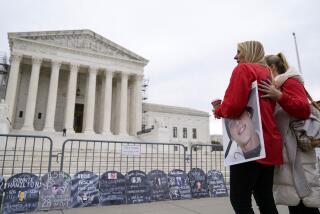Prudential Firm Agrees to Strict Fraud Settlement
NEW YORK — Capping an investigation into what is believed to be the largest fraud by a single brokerage against small investors, federal prosecutors on Thursday filed criminal charges against Prudential Securities for its $8-billion limited partnership program. But prosecutors agreed not to press charges if the brokerage lives up to a strict settlement agreement.
Prudential for the first time formally admitted that it had knowingly made “false and misleading” statements to retirees and other small investors, who bought partnership units based on Prudential’s false assurances that they were safe, tax sheltered and certain to bring a large return.
Over more than a decade, more than 600,000 investors nationwide put money into Prudential’s approximately 700 limited partnerships. Their losses are believed to have totaled over $2 billion.
The troubled brokerage firm, a subsidiary of giant Prudential Insurance, also agreed as part of the settlement to transfer immediately an additional $330 million into an open-ended settlement fund established a year ago for its clients. It thus doubled the amount paid into the fund so far.
The Prudential case stands as perhaps the most dramatic symbol of the overzealousness with which some brokerages pursued profits during the go-go 1980s, encouraging their salespeople to go to great lengths to earn huge commissions and fatten the bottom line. The Prudential abuses also occurred at a time when securities regulators and prosecutors were focusing on high profile cases, such as those involving junk bond promoter Michael Milken and convicted inside trader Ivan F. Boesky, paying scant attention to schemes that affected smaller investors.
Mary Jo White, U.S. attorney in Manhattan, said the agreement not to prosecute Prudential--called a “deferred prosecution”--was based on fear that an indictment could throw the firm’s 18,000 employees out of work and further harm investors.
The decision was also based on the fact that Prudential had cooperated in the inquiry and agreed to admit wrongdoing.
White emphasized that criminal investigations are continuing of former executives and charges may eventually be filed against them.
White hinted that one advantage of forcing Prudential to pay the $330 million immediately is that it would be available to investors even if Prudential should collapse.
A group of state securities regulators, meanwhile, warned that as a Jan. 10, 1995, deadline looms, thousands of investors across the country who are eligible to receive money from the fund haven’t yet filed a claim.
“We are very pleased that the government has decided to end its investigation and not take further legal action,” Prudential President and Chief Executive Hardwick Simmons said in a written statement. He said the firm is “dramatically different” today, and added, “I believe the government’s decision underscores the fact that we have taken extraordinary steps to resolve the partnership problem and fund any legitimate claims of investors.”
The admission of criminal wrongdoing, however, represents a remarkable pirouette by Prudential, which up until now has fiercely denied in civil lawsuits and arbitration cases that it broke the law. Although Prudential to date has paid out more than $1 billion in partnership claims, the denials have helped Prudential keep the costs of its settlements down, often preventing small investors from getting back the full amount of their losses.
For example, in a federal court hearing in New Orleans in January involving Prudential’s Energy Income Fund partnerships, Prudential lawyers called expert witnesses and argued that the firm had done nothing to defraud investors. At the end of the hearing, based largely on Prudential’s presentation, a judge approved a hotly contested class-action settlement that paid investors much less than their full losses.
In the documents filed Thursday as part of the settlement with prosecutors, Prudential admitted most of the wrongdoing it had specifically denied in the New Orleans hearing. Nevertheless, White said, the New Orleans settlement is final. Investors covered by such private class-action settlements aren’t eligible for the big settlement pool that Prudential added to on Thursday.
The criminal charges focused on the Energy Income Funds, which were the subject of a 1993 investigative series in The Times. Prudential sold about $1.4 billion of Energy Income units to more than 100,000 small investors.
Among them, too, were petroleum partnerships. In January, a group of investors filed suit in Orange County Superior Court against the accounting firm Arthur Andersen & Co., alleging a massive accounting fraud regarding the investments. Several of the investors were from Orange County.
The partnerships lost money because huge amounts were siphoned out in fees and commissions--15% in the case of Energy Income Funds--and because income projections had been based on dubious assumptions about how much the investments would yield.
Because of the settlement, the charges were filed in the form of a criminal complaint rather than an indictment. The accusations include:
* Prudential “falsely instructed its brokers that the investment was safe, low risk and suitable for all investors.”
* The firm falsely told investors that the income would be tax sheltered.
* Prudential misled investors into thinking they were receiving income from the partnerships when in fact they were only receiving back their own original investment.
The charges are to be held in abeyance for three years and then dropped, unless Prudential violates the settlement. Under the accord, Prudential must not violate any criminal laws and must continue to cooperate with the government in its investigation.
Times staff writer Chris Woodyard in Costa Mesa contributed to this report.
More to Read
Inside the business of entertainment
The Wide Shot brings you news, analysis and insights on everything from streaming wars to production — and what it all means for the future.
You may occasionally receive promotional content from the Los Angeles Times.










